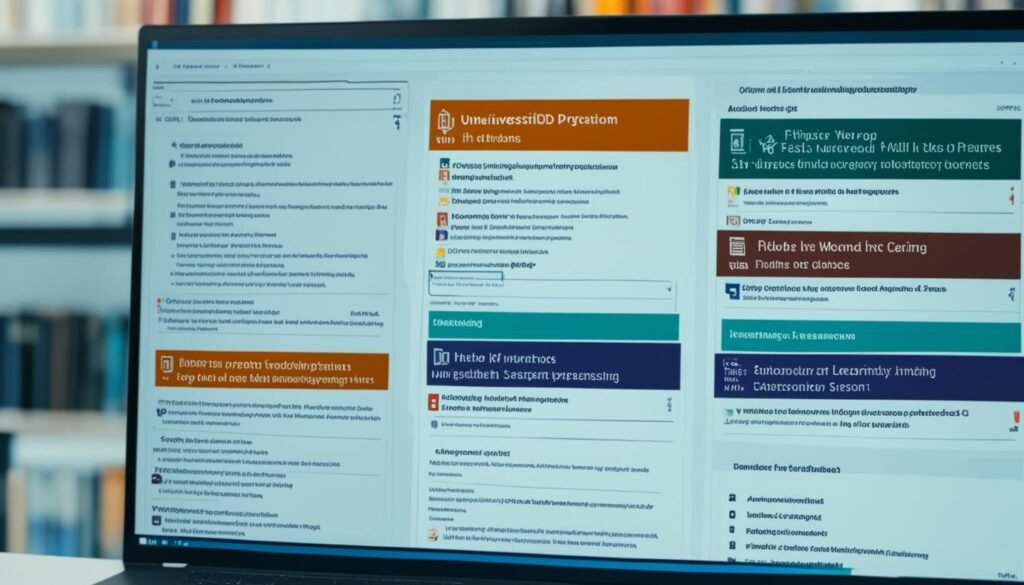Imagine this: after two years of intense coursework and late-night study sessions, you finally completed your Master’s degree. The graduation ceremony was an exuberant celebration—a well-deserved pause before embarking on an even more challenging journey: the transition to a PhD program. As you take your first steps into the world of doctoral research, the anticipation of academic advancement brings both excitement and apprehension. You are about to navigate a path that demands independent thought, rigorous research, and the resilience to contribute something original to your field.
This journey from a graduate to postgraduate research journey is familiar to many aspirants with dreams of a doctoral degree. Institutions like California Intercontinental University (CIU) and The Continents States University (CSU) understand these aspirations and difficulties. Together, they have forged a pathway ensuring a smooth and efficient transition from a Master’s to a PhD program. By leveraging their unique strengths—CIU’s innovative online education and CSU’s affordable, competency-based learning—they offer flexible programs and personalized support, making the doctoral program application less daunting.
An important consideration is the transformation in your academic life. The shift from a Master’s course that blends taught modules and research to a predominantly research-centric approach in a PhD demands a recalibration of expectations and responsibilities. In fact, MSc by Research (MScR) programs, typically lasting one year, serve as preparatory steps, equipping you with vital research skills essential for doctoral study. Graduates, armed with these skills, either continue toward their PhD or venture into impactful careers outside academia.
Key Takeaways
- Transitioning to a PhD involves a shift from coursework to a research-centric approach.
- Institutions like CIU and CSU offer supportive and flexible online programs.
- Preparation through programs like MSc by Research bolsters your research abilities.
- California Intercontinental University and The Continents States University ensure a seamless transition to advanced studies.
- Earning a PhD entails creating an original research contribution to your field.
Introduction to Transitioning from Master’s to PhD
Making the leap from a Master’s program to a PhD entails significant changes in various aspects of academic life. Understanding these shifts can help you navigate the transition more smoothly and set realistic expectations for your doctoral journey. This move introduces increased academic rigor and the necessity to meet higher standards of scholarly excellence. The journey involves marked changes in academic expectations and levels of responsibility.
Understanding the Shift in Academic Expectations
The move from a Master’s to a PhD signifies a substantial graduate to doctoral shift in terms of academic rigor. While Master’s programs often concentrate on additional coursework and some elements of research, PhD studies demand original contributions to your field. This involves a much deeper engagement with research autonomy, where you are expected to generate new knowledge and present it through dissertation writing. Achieving such academic milestones necessitates an advanced understanding of existing literature and the competence to propel that knowledge forward.
The Increased Responsibility in Doctoral Research
One of the most significant transitions involves the increased responsibility one assumes during a PhD program. Unlike Master’s studies where you operate under closer supervision, PhD candidates are expected to exercise a high degree of research autonomy. This independence involves devising and managing extensive research projects, often spanning 3–4 years, which culminate in your dissertation writing. Navigating such a demanding path requires robust self-motivation and the ability to persevere through academic challenges. Hitting academic milestones along the way, such as successfully passing comprehensive exams and defending your dissertation, are all part of the journey to earning your doctoral degree.
The Importance of Selecting the Right Institution
Selecting the right institution is crucial when choosing a PhD program. This decision not only influences your research opportunities but also impacts your access to resources, collaborative academic partnerships, and career prospects.
California Intercontinental University (CIU)
California Intercontinental University (CIU) is renowned for its innovative online education system and an unwavering commitment to academic excellence. CIU’s robust university research infrastructure ensures that students have access to vital resources and cutting-edge facilities. For students considering a flexible and supportive environment, CIU offers exemplary online programs that cater to individual needs. This institution stands out as a prominent choice for those pursuing a PhD with a focus on personalized learning and advanced research.

The Continents States University (CSU)
The Continents States University (CSU) is another prestigious institution recognized for its focus on affordable, competency-based learning. CSU prides itself on providing students with comprehensive support systems that ensure a seamless journey towards earning a doctoral degree. CSU’s emphasis on practical skills and affordability makes it a prime candidate for students prioritizing a cost-effective yet high-quality education experience.
Partnerships for Seamless Transition
Both CIU and CSU have established collaborative academic partnerships designed to ensure a smooth transition from master’s to PhD programs. These partnerships aim to foster a well-trained, diverse pool of doctoral candidates prepared for the demands of advanced research. The integration of flexible online programs with personalized support plays a pivotal role in enhancing the overall educational experience, making it easier for students to advance their academic and professional careers.
The importance of choosing a PhD program extends beyond the immediate academic horizon. Institutions like CIU and CSU demonstrate how strategic partnerships and a strong university research infrastructure can significantly impact a student’s PhD journey. By focusing on core strengths such as innovative online education, affordability, and practical learning, these universities offer tailored solutions that address the diverse needs of doctoral students today.
Master’s vs. PhD: Key Differences
Choosing between graduate vs. postgraduate education involves understanding the core distinctions between a master’s degree and a PhD. This section delves into the purpose, goals, program duration, and research assessment differences that set these two advanced degrees apart.
Purpose and Goals of Each Degree
Master’s programs are designed to deepen your knowledge of an existing field. In contrast, a PhD strives for PhD uniqueness by pushing the boundaries of that field through original research. The dissertation goals in a master’s program focus on demonstrating a comprehensive understanding of current scholarship. Conversely, doctoral studies require the development of a unique research project, often in close collaboration with a supervisor, aimed at contributing new insights to the academic community.
According to the United States Census Bureau, 24 million people in the US had master’s or professional degrees in 2019, whereas only 4.5 million had PhDs or doctorates. This highlights the selectivity and rigorous nature of pursuing a PhD.
Length and Course Structure
Doctoral programs typically span four to seven years, significantly longer than most master’s programs, which are usually completed within 12 to 24 months. This extended program duration allows for extensive research, often resulting in multiple publications. Tuition fees for master’s degrees at US universities range from $30,000 to $120,000, whereas most universities in Europe offer much lower tuition fees. In contrast, PhD programs usually have tuition fees waived and frequently provide funding equivalent to a salary.
The U.S. Bureau of Labor Statistics indicates that 63 occupations require a doctoral or professional degree, compared to 36 for a master’s degree, underlining the greater specialization and extended academic commitment needed for PhD programs.
Types of Assessment
Assessment methods differ significantly between these two levels of study. Master’s degrees often culminate in graded coursework, exams, or a final project. On the other hand, PhD programs emphasize research assessment differences through milestones such as the upgrade viva and the final oral examination, which appraise the originality and impact of the doctoral dissertation.
PhD holders can expect the highest wages and the lowest unemployment rate of 1.5%, in contrast to the 2.6% for master’s degree holders. Nonetheless, master’s degrees are generally more versatile when it comes to employment opportunities, qualifying individuals for various high-level roles in multiple industries.
California Intercontinental University (CIU) and The Continents States University (CSU) have partnered to create a seamless transition from a master’s to a PhD program. CIU is known for its innovative online education and commitment to academic excellence, while CSU focuses on affordable, competency-based learning.
The Application Process for PhD Programs
Applying to PhD programs involves a series of critical steps that build upon the foundation set by master’s degree applications. Both processes share similar requirements, including transcripts and letters of recommendation. However, there are some key distinctions when it comes to PhD application essentials, such as preparing a research proposal and crafting an academic CV.
Similarities with Master’s Applications
Like applications for a master’s degree, PhD applications require official academic transcripts, letters of recommendation, and standardized test scores (if applicable). Both processes necessitate a commitment to academic excellence and a clear articulation of research interests. Applicants typically need a minimum GPA of 3.5, with top programs setting the bar even higher at 3.7 or above.
Key Differences: Research Proposal and CV
One of the most notable differences in the PhD application process is the emphasis on preparing a research proposal. This document outlines your intended research, highlighting your understanding of the field and your innovative contributions. Another vital component is the academic CV, which details your professional and academic achievements, research experiences, publications, and conference presentations. These elements demonstrate your preparedness and suitability for rigorous doctoral research.

Importance of Contacting Prospective Supervisors
Engaging with future supervisors before submitting your application is a crucial step in the PhD journey. Reaching out to faculty members who align with your research interests can provide insights into the program and enhance your application strength. This interaction often mirrors seeking a professional role within an academic team and can significantly impact your chances of acceptance. In fiercely competitive fields like clinical psychology, where acceptance rates range from 5% to 10%, this step can sometimes make a decisive difference.
Funding and Support for Doctoral Studies
Securing adequate funding and support is paramount for those pursuing doctoral studies. Institutions like California Intercontinental University (CIU) and The Continents States University (CSU) provide crucial PhD financing options to help students on their academic journey.
Training Grants and Stipends
Training grants and stipends are essential forms of PhD financing that enable students to focus on their research without financial stress. Through various programs, students can find stipend opportunities to cover tuition, living expenses, and research costs. For instance, American Educational Research Association Dissertation Grants support advanced doctoral students in education research fields, while the GEM Fellowship offers PhD-level fellowships in STEM fields.
The NSF Graduate Research Fellowship Program is another notable source, supporting outstanding graduate students in STEM disciplines. Additionally, the Ford Foundation Fellowships in STEM provide comprehensive support for predoctoral, dissertation, and postdoctoral work, ensuring a broad range of doctoral scholarships and grants are available for aspiring Ph.D. candidates.
Health Insurance and Other Expenses
A critical aspect of doctoral studies support is academic health coverage. Institutions often include health insurance in their funding packages to cater to students’ wellbeing. For example, the UCF College of Graduate Studies offers assistantship positions that include academic health coverage and a bi-weekly stipend, thus easing the financial burden on graduate students.
Furthermore, comprehensive support systems are in place, such as the UCF Alumni Association, which awards over $40,000 in scholarships annually. There are external funding opportunities too, like the National Defense Science & Engineering Graduate Fellowship, and the DoD SMART Scholarships, which provide complete financial aid in STEM fields, including health insurance.
PhD by Thesis: The Traditional Pathway
The traditional route to a doctorate is the PhD by thesis. This involves creating a substantial piece of research, documented in a written dissertation, that contributes new knowledge to the field. Both California Intercontinental University (CIU) and The Continents States University (CSU) have teamed up to provide an efficient transition from a master’s to a PhD program. CIU stands out for its innovative online education and commitment to academic excellence, while CSU focuses on affordable, competency-based learning. This collaboration supports students through flexible, online programs with personalized support, ensuring a seamless transition to a doctoral degree.

Components of a PhD Thesis
A strong doctoral thesis is typically composed of several essential dissertation components. The dissertation components generally include the introduction, literature review, methodology, results, discussion, and conclusion. Each of these sections must clearly present and justify the research, contributing meaningfully to the broader academic discourse. Institutions like the University of Glasgow and the University of Cambridge have specific research length standards for these documents, contributing further to the academic writing expectations placed on doctoral candidates.
Length and Expectations
The research length standards for a PhD thesis can vary between institutions. For example, the University of Glasgow expects a thesis to range from 70,000 to 100,000 words, while the University of Cambridge sets an upper limit of 80,000 words. These academic writing expectations ensure that the candidate’s work is comprehensive and demonstrative of their research prowess. The culmination of this traditional pathway is the defense of the thesis in a viva voce examination. During this oral defense, candidates must present their findings and defend their doctoral thesis before a panel of experts, illustrating their in-depth understanding and ownership of the research.
Other Routes to a Doctorate
Beyond the traditional thesis-based pathway, several alternative PhD pathways offer more flexibility and align with different professional goals and experiences. Choosing the right route can play a crucial role in your academic and professional journey, from a doctorate by publication to professional and integrated PhD options.
Doctorate by Publication
A doctorate by publication enables candidates to achieve a doctoral degree by submitting a portfolio of their previously published work. This pathway typically requires a minimum of five to eight published pieces, along with a supporting statement of 5,000 to 15,000 words. It is an ideal route for professionals who have already made significant contributions to their field and wish to formalize their achievements with a doctoral degree.
Professional Doctorates
Professional Doctorates cater to individuals seeking to combine practitioner experience with a rigorous academic framework. These programs are popular in sectors such as engineering, healthcare, and education. Typically, professional doctorates involve a combination of coursework and a smaller-scale research project. They can span between two and eight years, often accommodating part-time study for working professionals. Universities like California Intercontinental University (CIU) and The Continents States University (CSU) offer flexible and affordable professional doctorate programs with a strong emphasis on real-world application.
Integrated PhD Programs
Integrated PhD programs provide a structured course combining a one-year research Master’s degree followed by a three-year PhD. This route is particularly beneficial for students who value a cohesive learning and research environment. Known for their innovative online education, institutions like CIU and the competency-based learning approach championed by CSU make it easier for students to transition smoothly into integrated PhD programs. The seamless integration of these phases supports students through a comprehensive academic journey from the outset.
Institutions Offering Distance Learning PhD Programs
Distance learning doctorates provide unparalleled flexibility and accessibility, accommodating candidates with work, family commitments, or those residing far from education hubs. Such programs, renowned for their asynchronous study options, often involve annual on-site visits while employing modern communication methods to maintain supervisory contact.
Advantages of Online PhD Programs
Online PhD programs offer numerous benefits, including the flexibility to balance professional and personal commitments. These programs enable you to engage in virtual doctoral research from anywhere in the world, keeping you connected with your supervisors and peers through digital platforms. This accessibility is crucial, as it allows you to study at your own pace and customize your learning experience to suit your needs. Moreover, online PhD graduates tend to enjoy high average base salaries, further proving the value of a flexible PhD study approach.

Examples of Institutions Providing Distance Learning
Renowned institutions like The Open University have built a strong reputation for excellence in the realm of distance learning doctorates. They offer extensive support and resources to ensure resounding success for distance learners. Additionally, California Intercontinental University (CIU) and The Continents States University (CSU) have partnered to create a seamless transition from a master’s to a PhD program. CIU is recognized for its innovative approach to online education and stringent academic standards, while CSU emphasizes affordable, competency-based learning. This collaboration offers students a robust, flexible PhD study program with personalized support, guiding them efficiently toward their doctoral goals. Institutions such as Johns Hopkins University, Nova Southeastern University, and George Washington University continue to be pivotal in fostering virtual doctoral research, maintaining excellent student-to-faculty ratios and high completion rates.
Preparing for the MPhil to PhD Upgrade
For those embarking on the transition from MPhil to PhD, thorough preparation is essential. During the first phase of PhD studies, students often register for an MPhil and must subsequently upgrade to full PhD candidacy. This upgrade process is a significant milestone and requires meticulous attention to detail.
First Phase of PhD Studies
The initial phase of PhD studies involves substantial groundwork. Both full-time and part-time students have specific timelines for their MPhil to PhD progression, typically around 9 to 18 months for full-time and 15 months to 2 years for part-time students. Consistent engagement with supervisors and adherence to a well-structured research schedule are essential during this period.
Requirements and Literature Review
A critical component of upgrade report preparation is conducting a detailed literature review critical analysis. This analysis situates your research within the existing academic context, identifying gaps that your work aims to fill. Moreover, this phase often includes a thorough examination of relevant methodologies and theoretical frameworks necessary to your research.
The Upgrade Report and Viva
Central to the MPhil to PhD progression is the preparation of your upgrade report. This report must encapsulate your research objectives, literature review critical analysis, and preliminary findings. Following submission, you will undertake an upgrade viva examination, typically lasting between 30 and 60 minutes. The viva assessment board may consist of one or two assessors and will evaluate your understanding of the research aims, methodology, and your ability to complete the project within the given timeframe.
The upgrade viva examination serves as a gateway to the more intensive phases of doctoral research. With rigorous preparation and a thorough understanding of your field, you can demonstrate your readiness to make meaningful contributions to academic knowledge.
Course Structure of a PhD Program
A PhD program demands a rigorous and structured academic year structure, typically extending over three to four years for full-time students. The journey is divided into distinct phases, each with specific doctoral candidate responsibilities and hands-on academic experiences.
Year-by-Year Breakdown
The PhD program timeline begins with a comprehensive review of the literature and detailed planning during the first year. This initial phase is critical as it lays the foundation for the following years. Students immerse themselves in coursework and prepare for the MPhil to PhD upgrade, often concluded with a rigorous evaluation.
In the second year, the focus shifts to primary research. PhD candidates engage deeply with their chosen topic, conducting experiments, gathering data, and beginning to analyze their results. This phase includes hands-on academic experiences that enrich their understanding and contribute to their field of study.
During the subsequent years, students concentrate on writing and refining their dissertation. The culmination of their efforts is the defense of their dissertation in a viva voce examination, where two examiners—a combination of internal and external—evaluate the work.
Throughout the PhD program timeline, the academic year structure usually involves semesters from August to December and January to May, allowing ample time for research and academic pursuits.
Additional Responsibilities and Experiences
Beyond research, PhD students are expected to take on various doctoral candidate responsibilities. Participation in teaching, presenting at conferences, and publishing papers significantly enhance their academic profile. These activities, though optional, provide valuable hands-on academic experiences, preparing candidates for future academic and professional roles.
Doctoral candidates also contribute to departmental administration and may engage in professional development activities, such as learning new languages or volunteering. These varied experiences ensure that by the end of their PhD journey, they are well-rounded scholars ready to advance their careers.
Assessment and Progress Monitoring in PhD Studies
PhD students experience a different set of assessment methods compared to undergraduate or master’s programs. Instead of standard exams or coursework-based evaluations, doctoral assessment methods focus on milestone achievements such as annual progress reviews and the final thesis defense process. These methods are designed to ensure adherence to academic standards and to monitor the continual progress of the candidate.
Annual Progress Reviews
Structured and regular progress review checkpoints are an integral part of PhD studies. Graduate units require supervisory committees to meet with their students at least once a year to assess their progress and provide input on their research. Ideally, these meetings should be held more frequently, such as twice per year, to address any concerns early. The committee report from these reviews directly contributes to the doctoral assessment methods, and an open discussion between the committee and the student is encouraged.
If insufficient progress is documented in two consecutive reports, the graduate chair or coordinator should consult appropriate offices for potential recommendations on termination. Institutions like California Intercontinental University (CIU) and The Continents States University (CSU) emphasize flexible, online programs that also include comprehensive progress review checkpoints, ensuring students remain on track.
Final Viva Voce and Thesis Defense
The thesis defense process, commonly referred to as the viva voce, marks the culmination of a PhD journey. During the PhD viva outcomes are crucial, as this is where candidates defend their thesis before a panel of experts. The defense process tests the depth and significance of the research conducted and determines if the doctoral degree is awarded. This final hurdle, after years of rigorous study and development, is essential in validating the academic and research acumen of the candidate.
Both CIU and CSU have developed comprehensive support systems for students undergoing the thesis defense process, ensuring they are prepared and confident as they present their research findings. This collaboration highlights the importance of having a structured support system throughout a doctoral program.
Role of Mentorship and Support Networks
Mentorship and support networks play a pivotal role in a successful doctoral journey. As you navigate through your PhD studies, building a strong relationship with your academic supervisors and actively engaging with peer support groups can significantly enhance your experience. Let’s delve into the importance of these relationships and how they contribute to your academic success.
Building Relationships with Supervisors
Developing a robust supervisor relationship-building strategy is crucial for receiving consistent academic support throughout your research process. Mentors offer invaluable insights into the technical aspects of PhD processes, reducing the daunting nature of these tasks. Familiarity with specific institutional requirements, especially in programs like those at California Intercontinental University (CIU) and The Continents States University (CSU), can be immensely beneficial.
The mentorship you receive helps alleviate feelings of isolation by providing opportunities for social interactions and constructive feedback, aiding in personal and academic growth. Effective PhD mentorship can streamline your journey, offering personalized advice and time-saving tips tailored to your unique work style and temperament.
Peer Support and Collaboration
Engaging with doctoral peer networks is another essential component of your PhD experience. Collaborating with fellow researchers and participating in university-sponsored mentorship programs can provide a well-rounded support system. This peer interaction not only fosters collaboration but also contributes to your academic development and personal well-being.
Peer networks offer a platform for sharing experiences, tips, and strategies, which can be crucial during challenging phases of your studies. Such doctoral peer networks are instrumental in providing both academic support and a sense of community, helping you stay connected and focused on your goals.
In conclusion, establishing solid relationships with your supervisors and engaging in active collaboration within peer networks can significantly enhance your PhD journey. The mentorship and support you receive are integral to overcoming challenges and achieving success in your doctoral research.
Challenges and How to Overcome Them
Embarking on a doctoral journey brings its unique set of challenges, and understanding these hurdles is the first step towards successfully navigating them. Doctoral candidates often grapple with time management, extensive writing requirements, and financial constraints. Added to these are feelings of imposter syndrome and the need for a strong sense of belonging within the academic community.
Common Obstacles in Doctoral Research
Time management is a critical issue, with doctoral students juggling multiple responsibilities, making it challenging to maintain a healthy work-life balance. Writing and researching for a thesis or dissertation is another substantial task, often leading to increased stress and potential burnout. Imposter syndrome is also prevalent, especially during the transition from undergraduate to graduate studies, causing self-doubt and fears of inadequacy.
Financial concerns cannot be understated, as funding education can strain many students. Challenges with supervisors, such as absenteeism or conflicts, are not uncommon and may necessitate a change of guidance. Additionally, mid-program periods, like the notorious “second-year blues,” can see a dip in motivation and confidence.
Strategies for Success
To overcome these research hurdles, employing effective time management strategies is paramount. Planning study time on campus and booking necessary resources in advance can streamline your workflow. Breaking down the dissertation writing process into smaller, manageable tasks and maintaining regular, short submissions to supervisors helps keep the research on track.
Building a support network is vital for doctoral resilience. Engaging with peers through clubs, societies, and professional relationships fosters a sense of community and belonging. Additionally, taking advantage of support programs and training courses can bolster your skills and capabilities. Financially, exploring scholarships, loans, and assistantships can ease the burden of funding your education.
Lastly, seeking social support from friends and family and considering blogging or podcasting about your research can create valuable new connections, alleviating feelings of isolation and enhancing overall well-being. By adopting these strategies, you can effectively navigate and overcome doctoral challenges, paving the way to a successful PhD journey.
Source Links
- https://www.ed.ac.uk/medicine-vet-medicine/postgraduate/postgraduate-blog/msc-by-research-stepping-stone
- https://www.waldenu.edu/online-doctoral-programs/resource/what-is-the-difference-between-a-doctoral-study-and-a-dissertation
- https://bitesizebio.com/11022/is-it-worth-doing-a-phd-after-a-masters/
- https://academicpositions.com/career-advice/master-s-first-or-straight-to-phd
- https://www.waldenu.edu/online-doctoral-programs/resource/how-to-choose-the-right-university-for-your-doctorate
- https://www.phds.me/resources/choosing-the-right-doctoral-program/
- https://blog.wordvice.com/masters-vs-phd-doctorate-degrees-key-differences/
- https://www.biu.us/en/blog/articles/differences-between-a-masters-degree-and-a-phd
- https://blog.accepted.com/applying-to-phd-programs-when-where-how-and-why/
- https://www.ivyscholars.com/phd-admission-guide/
- https://www.insidehighered.com/blogs/gradhacker/applying-phd-program
- https://grad.ncsu.edu/student-funding/fellowships-and-grants/national/nationally-competitive-graduate-fellowships/
- https://graduate.ucf.edu/other-funding-resources/
- https://www.prospects.ac.uk/postgraduate-study/phd-study/5-routes-to-getting-a-doctorate
- https://www.nu.edu/dissertation-completion-pathway/
- https://www.csss.es/phd-by-portfolio-pioneering-a-new-era-in-doctoral-education/
- https://www.linkedin.com/pulse/another-way-alternative-routes-traditional-phd-dale-dale
- https://www.waldenu.edu/programs/resource/can-i-earn-a-phd-or-professional-doctorate-if-my-masters-is-in-another-field
- https://www.accreditedschoolsonline.org/online-degrees/phd/
- https://www.oedb.org/rankings/online-phd-programs/
- https://www.findaphd.com/guides/mphil-upgrade
- https://www.findamasters.com/blog/6141/how-my-masters-course-helped-prepare-me-for-phd-research
- https://reflect.ucl.ac.uk/uclknowledgelabphdstudent/2020/05/01/mphil-to-phd-upgrade/
- https://www.findaphd.com/guides/the-phd-journey
- https://www.phdstudies.com/articles/how-are-phd-programs-structured-in-the-usa
- https://www.sgs.utoronto.ca/policies-guidelines/monitoring-doctoral-progress/
- https://www.mdpi.com/2673-8392/3/4/101
- https://ucdavis.jira.com/wiki/spaces/GRADHUB/pages/352990035/Student Progress Assessment Help
- https://www.pushfar.com/article/the-role-and-impact-of-mentorship-in-phd-studies/
- https://www.ncbi.nlm.nih.gov/books/NBK236193/
- https://www.bridgeport.edu/news/common-grad-school-challenges-and-how-to-overcome-them/
- https://www.prospects.ac.uk/postgraduate-study/phd-study/5-challenges-faced-by-phd-students


